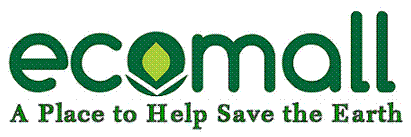

HOUSECLEANING MADE CLEANER

Could your housecleaning actually be dirtying the environment? Here are some tips on choosing household cleansers that will help keep your home both clean and “green.”
Avoid harmful ingredients. Though they might not bear a warning label, many household cleansers contain ingredients that pose problems for the environment and public health.
- Petroleum: Many conventional detergents (“surfactants”), solvents, and polishes contain paraffin, mineral oil, diethylene glycol, perchloroethylene, or butyl cellosolve—all of which are derived from petroleum. Extraction and refinement of this nonrenewable resource contribute to air and water pollution.
- Phosphates/EDTA: Phosphates, which have traditionally been used in detergents to soften water and increase cleaning power, encourage algae growth in waterways, depriving marine life of oxygen. EDTA, a common substitute for phosphates, degrades slowly in the environment.
- Phthalates: Manufacturers of many cleaning products use phthalates to prolong their products’ scent. However, these chemicals have been linked to cancer and disease of the reproductive system in laboratory animals.
- Antibacterial agents: The use of cleansers containing antibacterials such as triclosan and benzalkonium chloride could be contributing to an increase in antibiotic-resistant bacteria, resulting in human illnesses that are more difficult to treat.Chlorine bleach: This popular whitener and disinfectant can harm the environment by contributing to the formation of organochlorines (chlorine-carbon compounds) such as the chlorofluorocarbons that damage Earth’s ozone layer.
Choose “greener” alternatives. It’s possible to give your house an adequate cleaning without harmful chemicals. Look for products that contain environmentally friendly ingredients such as:- Citrus- and plant-based oils. Natural oils can be used as degreasers (orange, lemon), disinfectants (tea tree, eucalyptus), and polishes (olive). They also freshen the air at the same time.
- Sodium carbonate, sodium bicarbonate, sodium citrate, and sodium silicate. These compounds work like phosphates and EDTA to soften water, but without the harmful impact.
- Enzymes. Natural drain openers use digesting bacteria and enzymes to eat through most clogs.
- Non-chlorine bleach. These products use oxygen to whiten and brighten clothes.
- Make your own. Items on your kitchen shelves can serve as effective cleansers—at a fraction of the cost of brand-name products. A paste of baking soda and water, for example, is good for scouring, while diluted white vinegar will clean windows and kill bacteria, mold, and viruses.
Written by: Union of Concerned Scientists
RELATED LINKS:

Updated Daily!
| * * * IN-HOUSE RESOURCES * * * |
|---|





